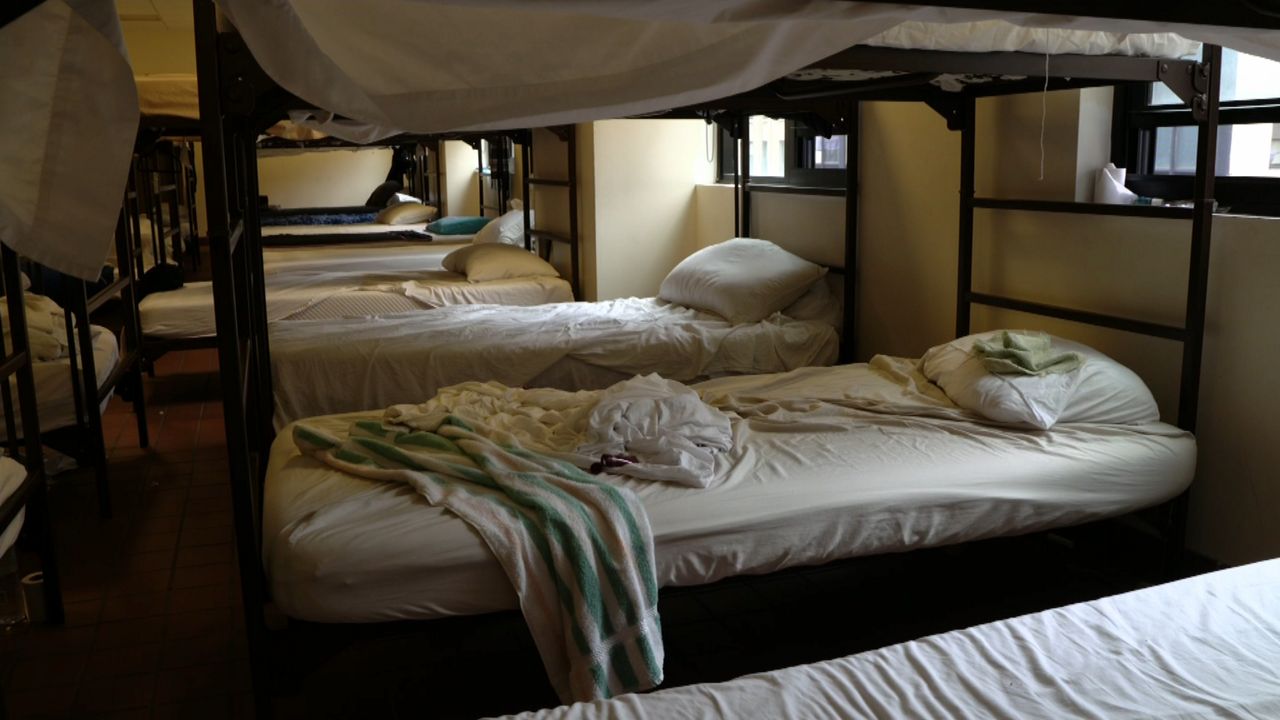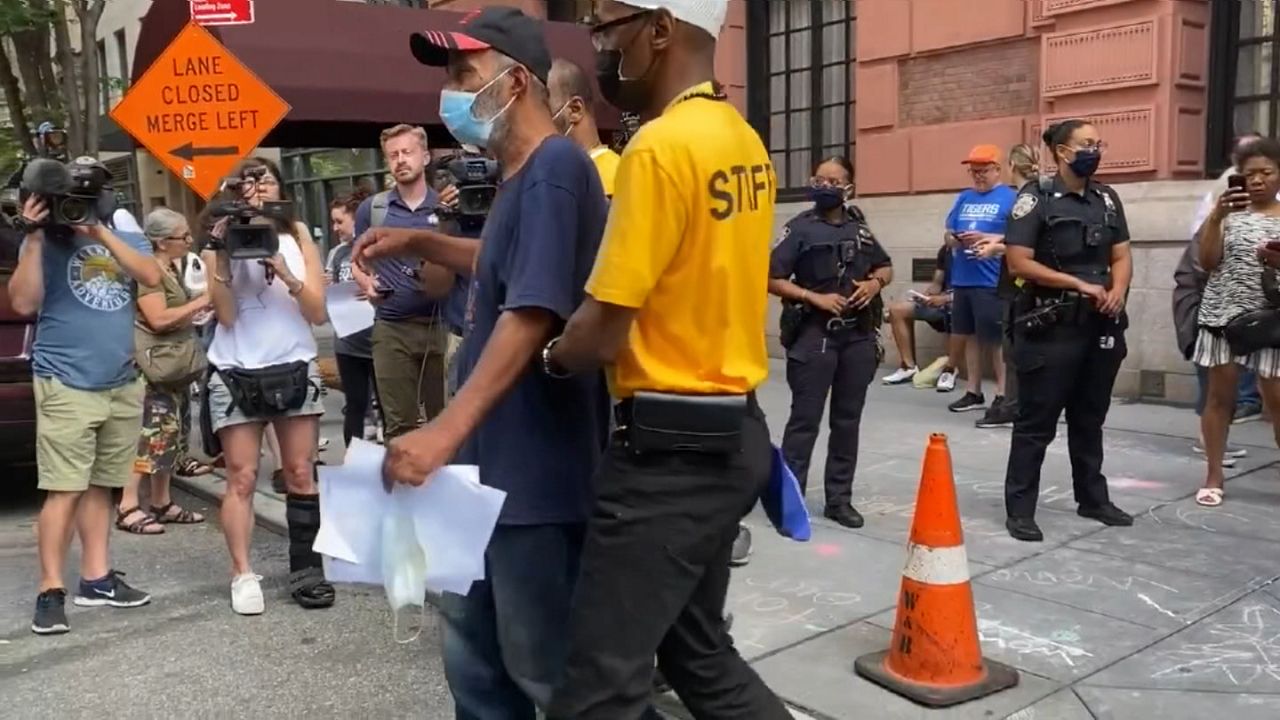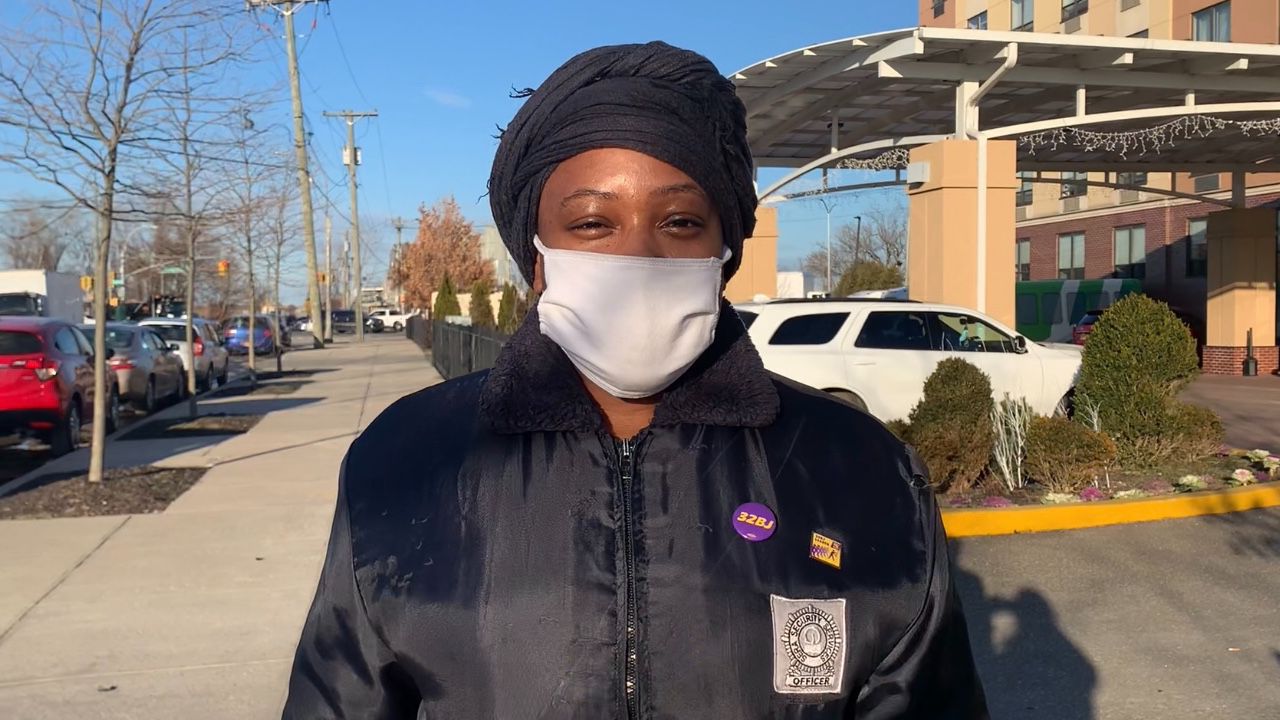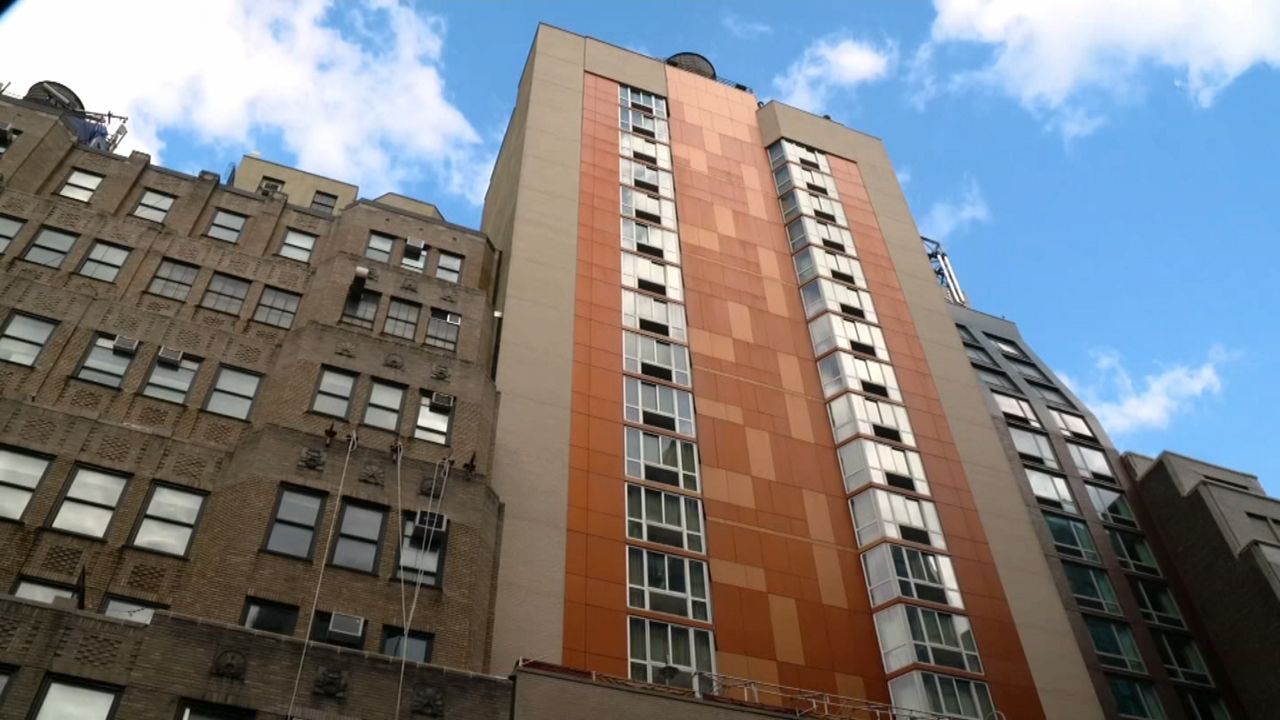It’s not exactly a booming market for the travel and tourism industry. But one Hotel in Queens is sold out.
The TownPlace Suites by Mariot is no longer catering to tourists — but instead to homeless New Yorkers who either have the coronavirus or are showing symptoms.
People like Christopher Lavinger.
“My temperature has been like a roller coaster,” he told us this week over Skype. "Its been really uncomfortable.“
- LIVE UPDATES: Coronavirus in New York City
- LIVES LOST: Remembering Victims of the Coronavirus
- What to Do If You Test Positive for COVID-19
- CDC Coronavirus Page
- WHO Coronavirus Page
Lavinger has been staying at this hotel for several days, battling a fever and nausea. He had been staying at this homeless shelter in Manhattan — the Jack Ryan Residence run by the nonprofit BRC.
Here, the beds are barely two feet apart. Lavinger said had been feeling symptoms for about two days before he was sent to a hotel — one of five isolation facilities the city has secured for the homeless.
“I was doing my best to stay away from people. It’s impossible, literally impossible,” he told NY1. "But I noticed my temperature went up to just over 100.”
He was then transferred to a hotel in the middle of the night.
So far, the Department of Homeless Services has reserved more than 700 rooms in hotels for those with COVID-19 or people who have symptoms and need to isolate. About 400 of them are occupied. It’s one way of trying to reduce the spread of the virus — which has already been found in more than 100 homeless shelters across the city.
“We’re going to need tens of thousands,” says Giselle Routhier of the Coalition for the Homeless. "Right now the city is prioritizing people who have tested positive or have symptoms. But we need to be moving people out who are in high risk-categories. We need to be moving people off the streets. We need to be moving people who are in large dorms and we are not there yet.”
Advocates tell us they want more hotel rooms — thousands of them. They want to move all vulnerable homeless New Yorkers to isolation.
As of this point that is unlikely to happen. The city has started to move older homeless individuals, people over the age of 70, into isolated facilities — away from the crowds of a traditional homeless shelter.
A spokesperson said the department continues to evaluate its approach to the pandemic every day. The head of BRC also said the agency follows all protocol given to them by the city, and it has successfully been able to work with the Department of Homeless Services to transfer symptomatic clients to isolation.









